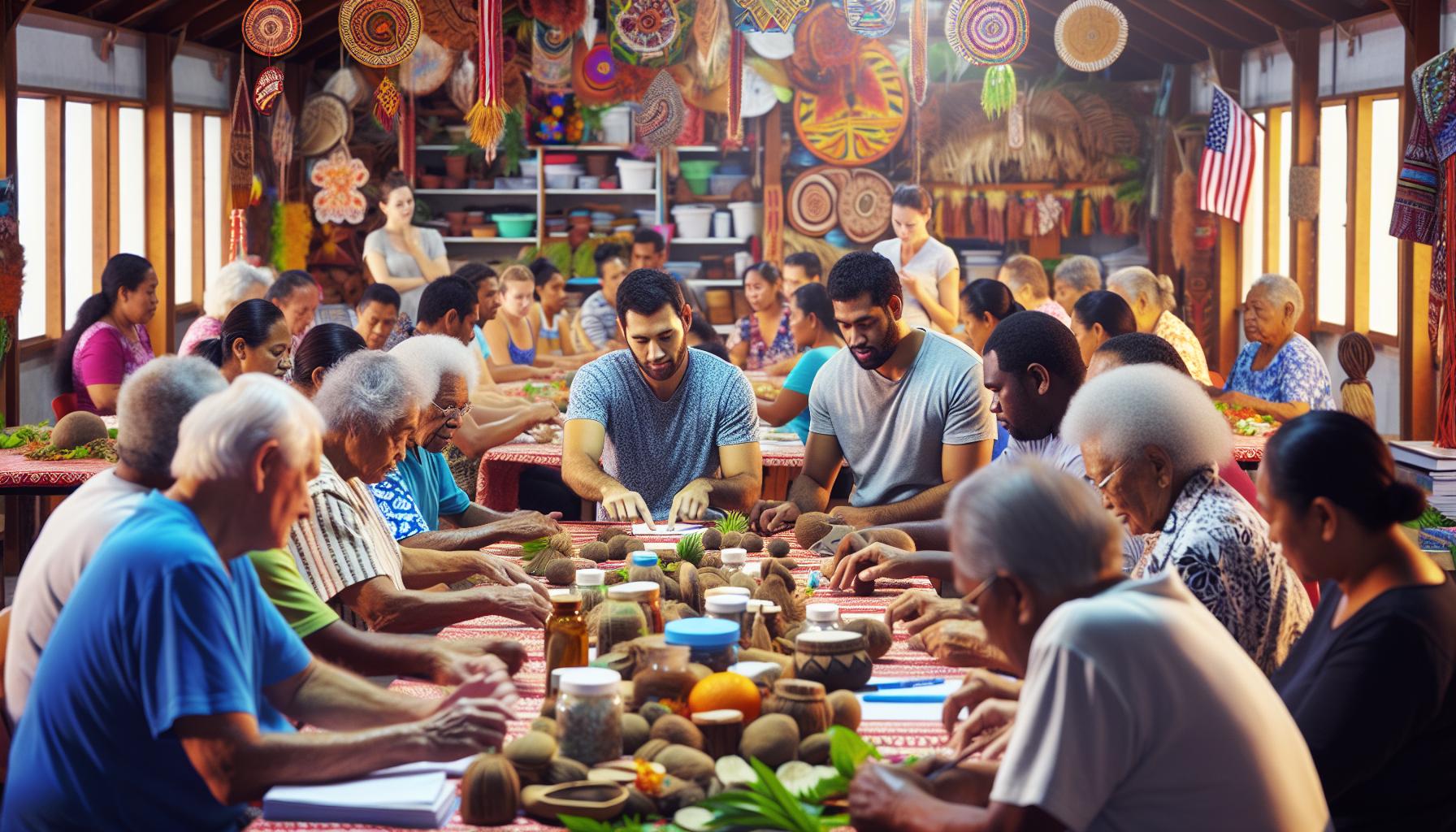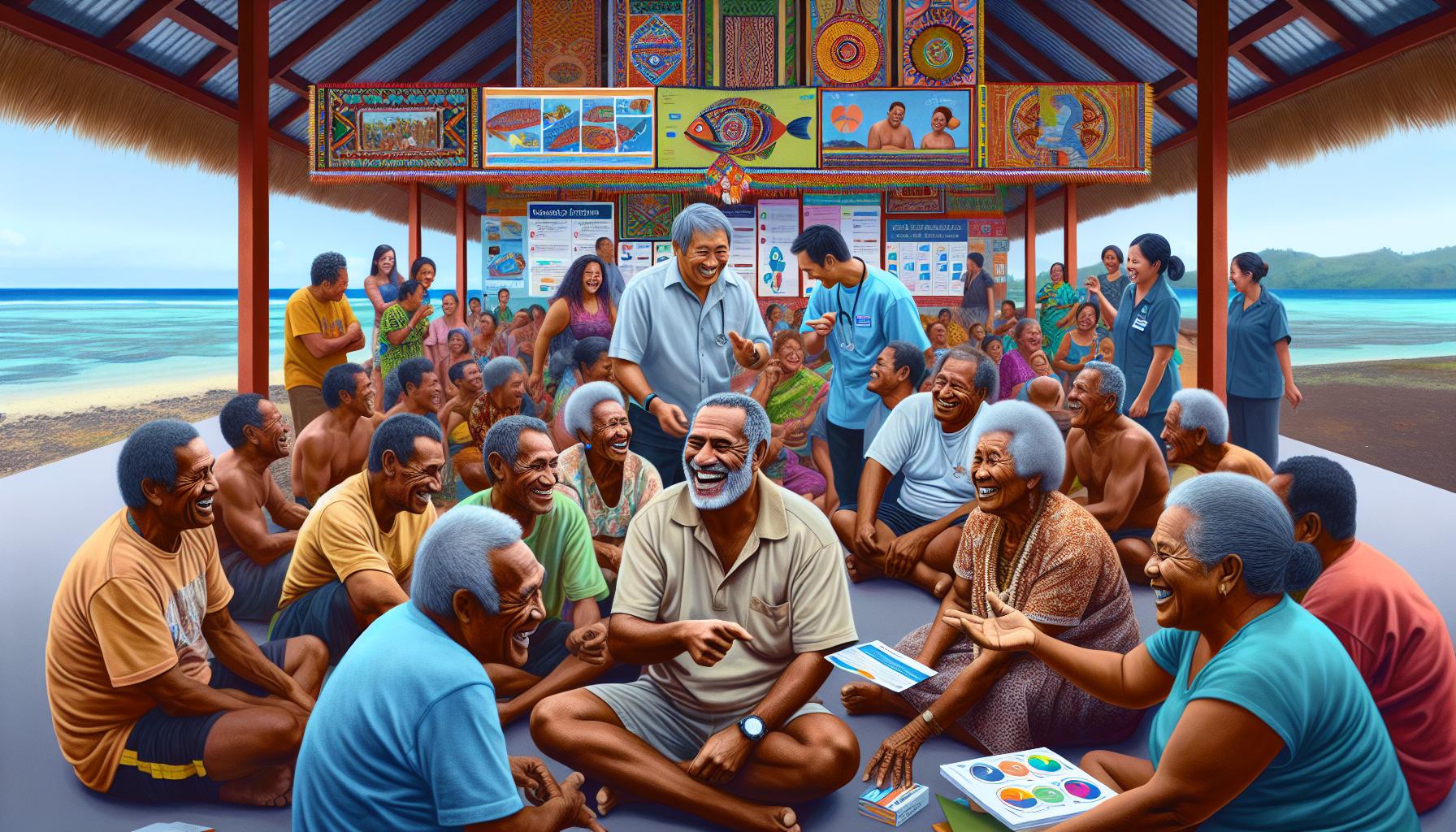In a world where health trends seem to pop up like mushrooms after rain, Pacific health education stands out as a beacon of wisdom and practicality. It’s not just about counting calories or hopping on the latest fitness craze; it’s about embracing a holistic approach that respects traditions while tackling modern health challenges. Imagine a health curriculum that combines ancient practices with cutting-edge science—now that’s something worth diving into!
As the Pacific Islands face unique health issues, the need for tailored education becomes crucial. From tackling diabetes to promoting mental well-being, this approach empowers communities with the knowledge they need to thrive. So grab your surfboard and paddle into the waves of Pacific health education—because who said learning about health can’t be as refreshing as a dip in the ocean?
Pacific Health Education
Pacific health education focuses on a holistic approach that integrates traditional practices with modern scientific insights. This method addresses the unique health challenges of Pacific Islands, including high rates of diabetes and mental health issues. Tailored health education programs enhance community understanding and capacity for self-care.
Culturally relevant strategies play a vital role in improving health literacy among diverse populations. Initiatives prioritize culturally appropriate resources and emphasize community involvement to foster sustainable changes. Health educators collaborate with local leaders to ensure content resonates with the unique experiences of island communities.
Evidence-based practices guide the development of educational materials, emphasizing the significance of data in driving effective health interventions. Programs often incorporate local languages and customs, enhancing accessibility and relatability for community members.
Collaboration among health organizations enables broader outreach, ensuring comprehensive coverage of health topics. Partnerships leverage expertise from various sectors, including education, government, and non-profit organizations. This synergy cultivates an empowered population capable of addressing its health challenges.
Understanding the impact of environmental factors further enriches Pacific health education. Climate change and access to clean water significantly affect overall health outcomes. Integrating environmental awareness into health education promotes resilience and encourages proactive health behaviors within communities.
Overall, Pacific health education strives to create informed and health-conscious populations through engaging and participatory methods, reflecting the values and traditions of Pacific Island cultures.
Key Principles of Pacific Health Education

Pacific health education thrives on culturally relevant practices combined with modern science. This approach ensures strategies resonate with the unique values and traditions of Pacific Island communities.
Cultural Relevance
Cultural relevance stands at the core of Pacific health education. Engagement with local customs enhances the acceptance and effectiveness of health initiatives. Health messages that reflect indigenous beliefs foster trust and encourage behavioral change. Tailoring educational materials to local languages creates a deeper connection to the community. Additionally, blending traditional healing methods with contemporary practices addresses concerns like diabetes and mental health effectively. The integration of cultural narratives into health discussions promotes shared understanding and enhances communication.
Community Involvement
Community involvement plays a crucial role in promoting health education. Empowering local populations to participate in educational programs increases awareness and ownership of health issues. Collaborative efforts among community leaders, health professionals, and residents help identify specific health challenges. Workshops that involve hands-on activities engage participants and improve health literacy. Moreover, partnering with local organizations creates sustainable initiatives that reinforce the importance of health education. Active participation strengthens community bonds, making it easier to address pressing health concerns collaboratively.
Programs and Initiatives

Pacific health education encompasses various programs and initiatives tailored to meet the unique health needs of the community. These efforts prioritize cultural relevance and local involvement to foster better health outcomes.
Successful Case Studies
Programs across the Pacific Islands demonstrate the effectiveness of culturally tailored health education. A diabetes management initiative in Fiji reduced prevalence rates by 30 percent through community workshops and traditional dietary education. In Samoa, mental health literacy programs led to a 40 percent increase in community engagement and utilization of mental health services. These success stories highlight the importance of localized approaches in implementing impactful health solutions.
Collaborative Efforts
Collaboration among health organizations, local leaders, and community members plays a crucial role in enhancing health education. An initiative in Tonga brought together various stakeholders to address non-communicable diseases, resulting in the development of a unified health strategy. Partnerships with schools improved nutritional awareness, reaching over 5,000 students in the process. Such collaborative efforts empower communities to take active roles in their health, driving meaningful change and fostering a shared sense of responsibility.
Challenges in Pacific Health Education

Pacific health education faces several significant challenges that impact its efficacy. Resource limitations often hinder the implementation of successful health education programs. Many Pacific Islands experience inadequate funding and a lack of trained personnel, which restricts access to necessary educational materials and training opportunities. Insufficient infrastructure further complicates the delivery of health services and programs, necessitating innovative solutions to maximize available resources.
Accessibility issues pose another critical barrier. Geographic remoteness of many islands creates difficulties in reaching communities with health information and services. Limited transportation options exacerbate this challenge, making it hard for health educators to connect with isolated populations. Language differences also contribute to accessibility concerns, as educational materials may not be available in local dialects, complicating communication and comprehension. Addressing these challenges requires collaborative efforts and strategic planning to ensure that health education is inclusive and effective across the Pacific region.
Future Directions
Pacific health education continues to evolve with innovative strategies and policies that align with community needs.
Innovations in Education
Technological advancements play a vital role in delivering health education. Utilizing mobile applications allows for direct communication of health resources to remote populations. Interactive workshops engage participants, fostering a hands-on approach to learning. Incorporating local languages into digital platforms ensures accessibility for a wider audience. Strengthening community ties enhances collaboration, allowing residents to share personal experiences and insights. Emphasizing storytelling techniques respects cultural traditions, making health content relatable and memorable. These educational innovations not only improve health literacy but also empower individuals to take charge of their health.
Policy Recommendations
Policymakers should prioritize funding for health education initiatives that embrace cultural relevance. Developing comprehensive training programs for local health educators can enhance program effectiveness. Advocating for policies that encourage collaboration among various sectors strengthens community resilience. Addressing resource limitations remains crucial; partnerships with NGOs and governmental agencies can mobilize support. Ensuring access to up-to-date health information allows communities to adapt to changing health challenges. Promoting environmental health awareness must be an integral aspect of educational campaigns. These policy recommendations provide a framework to create sustainable health education practices in Pacific communities.
Health Journeys
Pacific health education embodies a transformative approach that not only addresses immediate health challenges but also fosters a deeper connection to cultural practices. By integrating traditional knowledge with modern strategies, it empowers communities to take ownership of their health journeys.
The focus on collaboration and local involvement ensures that health initiatives resonate with the unique needs of diverse populations. As the region faces ongoing health and environmental challenges, the commitment to culturally relevant education remains vital for building resilience.
Investing in these tailored educational efforts will pave the way for healthier futures across the Pacific Islands, ultimately leading to more informed and engaged communities.

